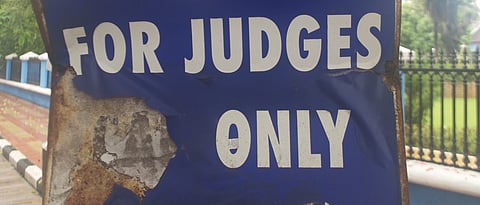
- News
- Columns
- Interviews
- Law Firms
- Apprentice Lawyer
- Legal Jobs
- हिंदी
- ಕನ್ನಡ

The Bombay High Court has reiterated that under the constitutional mandate, there cannot be any opposition by the state government when the High Court Administration seeks creation of additional courts or posts.